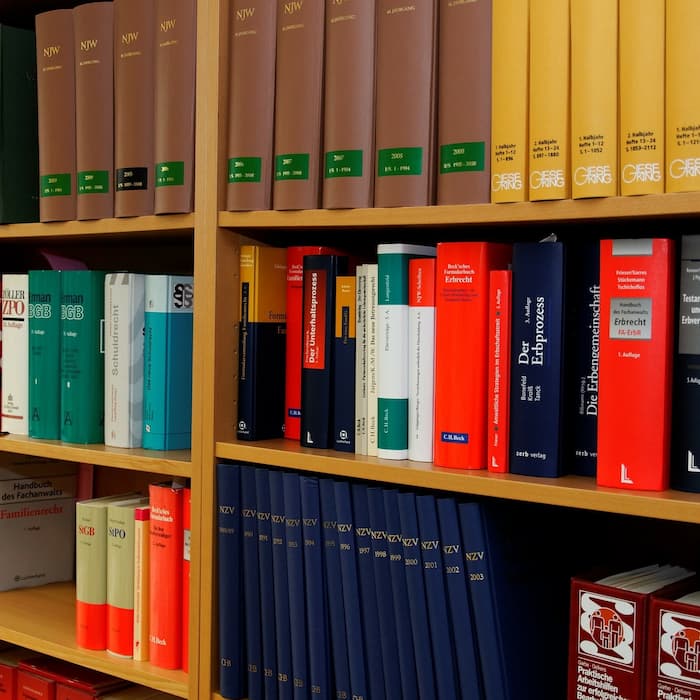Offshore
As Silicon Valley Bank Collapses, How Former Clients Can Resist "Clawback" Lawsuits

A mark of the litigious culture of the US is how those who withdraw money from a stricken business, even weeks before bankrutpcy and failure, can be open to lawsuits from those seeking to "claw back" such money and redistribute it. One protective option is to use offshore trusts, a US attorney tells this news service.
Stories of clients taking money out of Silicon Valley Bank days before the US lender went bust raise the question of whether lawyers might try and claw back money to redistribute among those unable to hit the exits.
In a litigious country such as the US, a client who had managed to pull money out of a rickety institution weeks before a crash might learn that fee-hungry lawyers see them as prey. And people should protect themselves from such lawsuits, for example, by using offshore trusts, an attorney says.
Blake Harris, managing partner of Blake Harris Law, told Family Wealth Report that clients who fled from Silicon Valley Bank over recent weeks could be targeted in lawsuits, however unfair or capricious such legal action might appear. Harris specializes in asset protection, and the use of offshore trusts is an important and under-appreciated tool.
“I’ve been an attorney for more than a decade and haven’t been as busy as now,” Harris, who divides his time between Denver and Miami, said.
“They [former clients] could be targeted by a lawsuit and there may be some clawback actions. Managers, some staff who had taken profits before the bank went under could be targeted as well,” he said.
Trusts located in jurisdictions such as the Cook Islands, Nevis and Belize can be used by US citizens to shield themselves from such lawsuits, Harris said. There hasn't been an example of these trusts failing to thwart such attacks, he said.
“We have had clients who reached a favorable settlement,” he said.
Using domestic US trusts, such as those in South Dakota, New Hampshire, and other states, does not shield people from US lawsuits. Under the full faith and credit clause of the US Constitution, domestic trusts can be compromised, he said. Instead, US courts cannot reach foreign trusts.
An important point is that offshore trusts don’t get US citizens off the hook for filing US tax returns, and these aren’t tax shelters.
Harris said awareness of how foreign trusts can be a lawsuit buffer is rising, but still not as great as it should be. “People are often misinformed,” he said.
90 days
Based on previous lawsuits, such as the Tom Petters case, a
person who withdrew funds within 90 days ahead of the closure of
an organization could be assumed to have known that there was a
problem, Harris said.
According to a note on the Petters case from law firm Burns|Hansen, Doug Kelley, the bankruptcy trustee for the Petters bankruptcy, sought to claw back hundreds of millions of dollars from a host of investors in the Petters Ponzi scheme, as well as from other parties. A team of attorneys working on Kelley’s behalf has filed more than 100 lawsuits seeking the return of money that is allegedly tainted by the Petters fraud.
As the firm said in its note: “As an example, Kelley recently filed a clawback lawsuit to seek at least $323 million from a Chicago hedge fund. This suit comes on the heels of a lawsuit filed to recover $137.7 million and as much as $2.5 billion from the Sabes family and associated companies. These two suits are, in a sense, only the tip of the iceberg. The question is whether it can be shown that these parties had reason to believe that Petters’ operation was fraudulent.”
In the renowned case of of the Bernard Madoff Ponzi scheme, lawyers acting for some of the victims sued those who had taken money out of the entity.
Some large names are involved in pulling out of SVB. On March 9, Bloomberg reported that Founders Fund, the venture capital fund co-founded by Peter Thiel, the investor and commentator, had advised companies to get out of SVB.
On a related but separate point, two top executives at Silicon Valley Bank have been slapped with a class-action lawsuit. The lawsuit names CEO Greg Becker and CFO Daniel Beck, alleging that they knowingly misled stockholders about SVB’s ability to navigate risks.
Under the federal government rescue, the Federal Deposit Insurance Corporation stands behind the depositors of the bank – a controversial position as many of them are wealthy individuals.